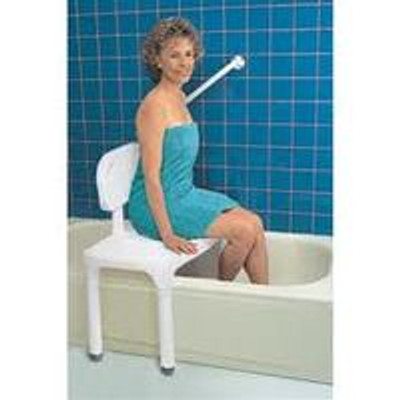 13th Aug 2013
13th Aug 2013
Fall Prevention for the Elderly
Once an elderly loved one has taken an unexpected fall and has injuries, people may find themselves making important decisions they may be unprepared to make quickly with regard to initial care, rehabilitation, housing, etc. In most cases, an elderly person that suffers an injury due to a fall will have the opportunity of working with a physical or occupational therapist as they try to return to the level of activity and health they enjoyed prior to the fall and resulting injury. The care that physical and occupational therapists provide following a fall with injuries can be phenomenal, however, encouraging an elderly loved one to begin working with a physical or occupational therapist to avoid falling in the first place may prove invaluable. Medicare covers fall prevention therapy.

Physical and Occupational Therapists can help elderly patients overcome injuries sustained from falls and help with avoiding falls.
Physical and occupational therapists can perform a comprehensive fall prevention physical evaluation, which should include a full medical history, strength evaluation, balance assessment, and a functional mobility assessment. The therapist would then be able to identify areas that may require some training, practice, and exercise to increase strength, improve balance, and increase an individual’s ability to get out of bed, use the restroom, including a tub or shower, stand up from a seated position, walk up and down stairs, etc. more safely.
A therapist may also be trained to perform and in-home assessment and prescribe basic improvements that could help prevent a fall such as grab bars near the tub, shower, and toilet. The may be able to identify areas where non-slip rugs or floor mats might be appropriate. They can offer suggestions to improve the lighting in the home so vision and proprioception would be better. Therapists can also help suggest simply devices such as reachers or grabbers that can help a person retrieve items from the floor without bending or stooping or from overhead cabinets so that individuals do not need to climb onto stools or chairs. Therapists can also suggest simple aids that can help a person bathe, shower, and dress without getting themselves off-balance. A therapist might suggest raising low furniture through the use of furniture risers so standing is easier or they might suggest a transfer handle or pole to allow a person to use their upper body strength to help them stand more safely. They may even suggest a strap or portable handle to help a person get into and out of a vehicle more safely as well.
The care that a physical or occupational therapist can provide for a loved one after a fall is vital, but they can also provide care and counsel to prevent falls from occurring. Find more at ProHealthcareProducts.com





